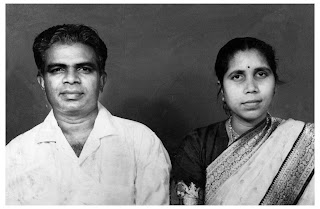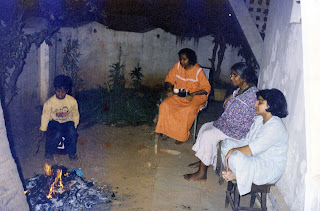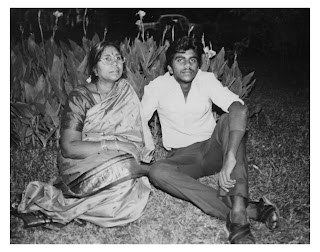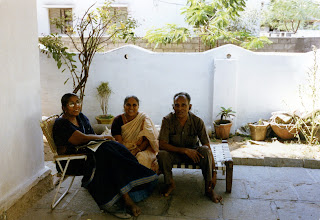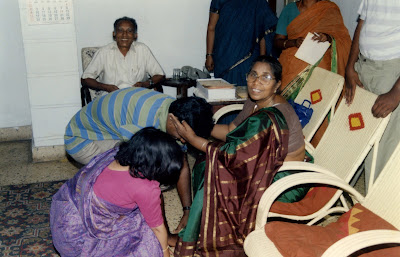I liked those little books - "The Art of Thinking Clearly" and "The Little Decision Book" and picked this up along with them. It looked interesting with several concepts put together. There are many stories and examples which came in quite handy.
Create without restriction like Salvador Dali did - who was a writer, painter, movie maker, performer, designer, jeweller, architect and many things together. You could create anything with a creative mind.
Think like a beginner - a group of people were asked to swap their functions and come up with ideas and how being inexperienced helped them in looking at the solutions differently.
Get inspired by Michelangelo who was brought up by quarrymen and worked on stone from six years of age and sculpted - he accumulated 1000s of hours of practice by the time he was twelve.
Convey the idea well - else you could end up like the ineffective PowerPoint that failed to highlight the lacunae in the Spaceship Columbia and completely lost the point.
Be yourself as represented by Coco Chanel who viewed fashion differently.
Robert De Niro's great commitment to making Raging bull (apart from convincing everyone else, he put on 65 kilos for the role) or the student who produced his own Shakespearean plays and played all parts until his production became a hit.
Commitment exemplified by the Beatles who played 1200 hours during a four year period in Hamburg playing 8 hours a day to live audiences up to 2 in the morning and bettering themselves with feedback each day. Creativity came out of work and work and work.
Create positive art out of negatives by looking at it deeply - the fact that it creates strong reactions is good enough to continue that path.
Create stuff that is completely useless but create for the heck of it - like the lemon juicer that does not work.
The story of Subrahmanyam Chandrasekhar who taught astrophysics to a class of two - and was laughed at because he had to travel 80 miles to that rather insignificant class - but all three in that class got Nobel prizes later.
Doubt everything all the time as Richard Feynman did.
How a deep sense of inadequacy fueled greater work like David Bowie's who felt pretty inadequate at the height of his work. Or John Lennon who wrote Help in a bout of inadequacy.
Be inspired by nature - the Bird's nest stadium, Opera House (inspired by a orange), Bullet Train inspired by a kingfisher.
Instead of being an expert try to work it out together in the classroom - stand at the back, make the audience stand, ask their perspectives.
Paulo Coelho was committed to the mental asylum thrice by his parents for his desire to write and how he prevailed despite electric shocks.
Be counter intuitive like Paul Samuelson who suggested counter intuitive measures after the World War II.
Be Inside Out - the story of dressing up ad agency people like old people to understand what they face and then design the advertisement for old people based on that experience.
Francis Ford Coppola who shot 230 hours of footage in 16 months (from the original six weeks) for Apocalypse Now and took 3 years to edit the same - creating more material and picking the masterpiece from that. Picasso produced thousands of art works but only exhibited 5%.
The beauty of the broken Venus de Milo or how Starbucks launches stuff that is still not perfect is a lesson to not aim to achieve perfection - there's beauty in the undone stuff.
The 90-10 principle - 10% is what happens to you and 90% is your response to it. The key difference to successful creative people is their reaction to negative events.
Edison and Tesla fallout and the war over AC and DC current.
The brilliant story of Adolf and Rudolf Dassler who created Adidas and Puma in their small town in Germany and competed to make the best trainers. The contrasting style s of Constable and Turner who egged each other on with their rivalry. The study by Tim Rees where students performed better after being criticised by rivals.
Note down stuff that touches you so you can use it somewhere else - like how Yale graduate Maya Lin designed the Vietnam War Memorial with 60000 names on the shiny marble inspired by the memorial in Yale fr the World War II veterans.
How Steve Jobs made a huge difference with a small amount of design knowledge. He did only what interested him and realised that for good design you need less.
Richard Branson who created an empire of 400 companies and 60000 employees without knowing the difference between net and gross profit. He did not need to know that to create what he did.
How to be childish to create something interesting - draw the picture of the person next to you. The study on value of play by using fun activities and breaking them into 30 minute slots at work.
How not to lose momentum in creative work as exemplified by Scott Fitzgerald who maintained momentum by doing nothing but write and rewrite until his one idea was done with great energy.
Have no goals like William Burroughs who sometimes put sentences at random and broke the restraint imposed by goals.
Be in the moment and not judging each moment. "Flow is being completely involved in an activity for its own sake."
Andy Warhol's open studio with no privacy where anyone could go and create.
Plan to have more accidents - the problem is not the accident its you. Be more receptive to the unexpected. X Rays/ current, immunology, radio activity, penicillin were all discovered thanks to accidents.
Or like Ed Woods be really bad and stick to it - he was voted the Worst Director of all Time. Auction Bay - ebay and the story of the person who collected broken printers. There are markets for everything including the broken and the bad.
Get inspired by the past.
Work different hours and discover different beats like the guy who worked on chaos by working 26 hours a day. Or Charles Dickens who walked at night to meet interesting characters.
Be willing to look stupid - total freedom is ignorance.
Truman Capote's story of his interest in a farmers murder - how he travelled 1700 miles to interview people and establish facts and made 8000 pages of notes before writing the bestselling book "Cold Blood". Opportunities exist under our nose.
Microsoft changes departments for its employees just to see if they can produce different ideas. Lucian Freud who kept his studio bare and free of distractions worked long hours, 7 days a week, 365 days a year, and eliminated all distractions.
Starbucks was created because Howard Schultz wanted to create a company with health insurance, something his father never had.
Chuck Close who was a photorealist artist who lost mobility and then became an excellent miniature artist. Or Django Reinhardt who became a great guitarist with a unique style because he had lost two finger in one hand.
Or simply - tell the truth.
Suspend judgment. The soundless performance in Royal Albert Hall is as good as the greatest symphony.
How James Joyce wrote the way he wanted without worrying about selling, audiences etc.
Kurt Cobain who loved his obscurity, slept under a bridge in his most creative years, and later would go sleep in a motel when he lost the comfort of obscurity.
Robert Zimmerman who moved to NY and became Bob Dylan - he had to find people who understood his wavelength and share his values. Shared knowledge creates energy.
Create from your innermost demons. Our most worth while works come from our innermost demons. Find what you stand for - write a manifesto, a statement of principles, a call to action. How Apple says no to 1000s of projects so they can work on the few that are important.
How Raymond Chandler consciously sets four hours a day for doing nothing.
The janitor in Pixar who became an animator taking an after work programming course and worked on Toy Story, Finding Nemo etc. Contributions can come from anybody. Let them express their ideas.
Get into credit - make money. Creativity and money go together.
Look forward to disappointment- how Beethoven lost hearing but produced great work after that. Think with your feelings and not mere thoughts.
How to bring chaos to order.
Take what you need - writing out a great work word by word to find inspiration.
"Merrily we roll along" was a failure when it first released but he reworked and reworked until it became a hit.
Eric Blair dressed in rags to understand poverty- he was to be George Orwell later.
Be anonymous - the screen writer who could only write anonymously.
Achieving work life balance like the writer who only wrote so much - he did not make much nor did he find much fame but he was .
Giles Brindley - and the 1983 Urologist convention where he proved his discovery that led to Viagra. First he explained, then showed images and then the real thing.
Use opportunity like Woody Allen did when he wrote out Warren Beatty from the movie 'What's new pussycat?' They hired Woody Allen to write jokes for USD 30000+cameo and Woody wrote himself in and wrote Beatty out.
Contradict yourself more. Think contradictorily.
Take jokes seriously. Have fun. Humor switches pattern.
Or discover life like the Inuit who came to America and just wandered all over until he spent all his money and then settled down in that place for the rest of his life.
Immerse yourself in what you love - Tarantino who worked at a video rental and discussed films with his customers.
Reject acceptances, accept rejections - Jonathan Livingston Seagull was famously rejected 140 times. Be as annoying as possible - eat the poor children - said Jonathan Swift and even provided recipes to do so.
Start playful - the idea of Simpsons that came in a last minute presentation. Play should be fun, purposeless.
And on and
on. Creativity is then about creating for the purpose of creating. Being committed, Having fun. Bringing deep concentration and intense focus. Putting in the hours. Knowing how to present it. Seeking inspiration from everywhere - including your rivals. I love the 'immerse yourself' bit and the James Joyce bit of 'writing as he pleased'. Creating art for art's sake and nothing functional. Brave stuff but then all creation is pushing a boundary - one thought at a time. Lots of nice little stories.












